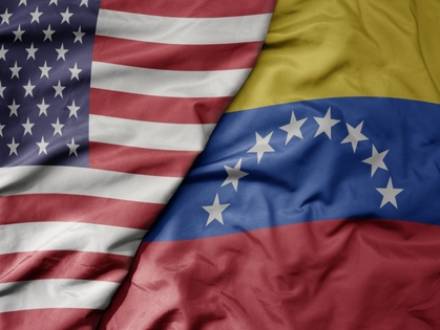Thousands of Venezuelans Face Deportation as TPS Program Ends
 Venezuelans in Chicago under the TPS program now face deportation after the Supreme Court upheld the revocation of the TPS program by the administration. This could potentially affect hundreds of thousands of Venezuelans who have been living in the United States for years under Temporary Protected Status (TPS).
Venezuelans in Chicago under the TPS program now face deportation after the Supreme Court upheld the revocation of the TPS program by the administration. This could potentially affect hundreds of thousands of Venezuelans who have been living in the United States for years under Temporary Protected Status (TPS).
This status allows immigrants to live and work in the U.S. with no threat of deportation, although it does not provide a pathway to citizenship or permanent residency. A lower court blocked Homeland Security’s attempt to terminate the TPS program for Venezuelans in February, but the Supreme Court lifted the lower court’s injunction.
The vice president for immigrant justice at the Resurrection Project states that the agency has assisted over 9,000 Venezuelan immigrants in applying for Temporary Protected Status (TPS) and asylum status. Unfortunately, the conditions in Venezuela have not improved significantly since these individuals came to the United States. Chicago officials estimate that their city has welcomed more than 51,000 migrants from the southern border since August of 2022 and that about 30,000 are from Venezuela.
The Resurrection Project helps those arriving in the city to find homes and jobs. They pay rent and taxes while working and contributing to the United States economy. The mass deportations across the country are affecting the stability of families who fear they will be split up. If you are here under Temporary Protected Status or asylum, it is important that you speak to an experienced Lombard, IL immigration lawyer as quickly as possible to determine your options.
What Is the TPS Program for Venezuelans?
TPS status was extended to 714,700 Venezuelans in 2023, enabling them to work. The decision was made by the DHS Secretary, who said he made the decision after reviewing the conditions in Venezuela and finding that an ongoing armed conflict was present, which posed a serious threat to the personal safety of many Venezuelans.
Congress created TPS in 1990 with a framework to allow illegal aliens from a country to stay here for a limited period of time when civil violence or a natural disaster exists in their home country. TPS status can potentially last for decades, although the Venezuelan TPS applied only to nationals of that country who have continuously resided in the United States since March 8, 2021.
The designation of Venezuela was due to the instability and lack of safety resulting from ongoing security, environmental, political, or humanitarian conditions. Anyone impacted by the 5.1 earthquake near Bucaramanga, Venezuela, was also allowed to come into the United States under TPS. Residents of Venezuela have also suffered under the repressive policies of the late President Hugo Chavez and the current President, Nicholas Maduro, which have stretched from 1999 to the present.
Although Venezuela was once one of the wealthiest countries in South America, the past two decades have seen mass starvation and violence, with the government seizing private industries. Many of the Venezuelans here in the U.S. under TPS status did not actually come to America from Venezuela.
They had already moved to neighboring countries to escape socialist regimes and a lack of food and work. One woman had been in Ecuador for seven years before coming to the U.S. under Temporary Protected Status (TPS) status. Regardless of how they arrived, Chicago can expect to see the removal of many of these Venezuelans who called the city home in the near future.
Contact a DuPage County, IL Immigration Lawyer
If you are here illegally, under TPS status, asylum, or under any type of temporary visa, you should speak to a Naperville, IL immigration attorney from Mevorah & Giglio Law Offices as soon as possible. This will help you understand your current status and enable you to discuss the steps you need to take to avoid deportation. Attorney Mevorah has been serving the needs of Northern Illinois immigrants for more than 40 years. Call 630-932-9100 to schedule your free consultation.
 English,
English,
 Spanish,
Spanish,
 Polish,
Polish,
 Urdu
Urdu













 Make a Payment
Make a Payment



